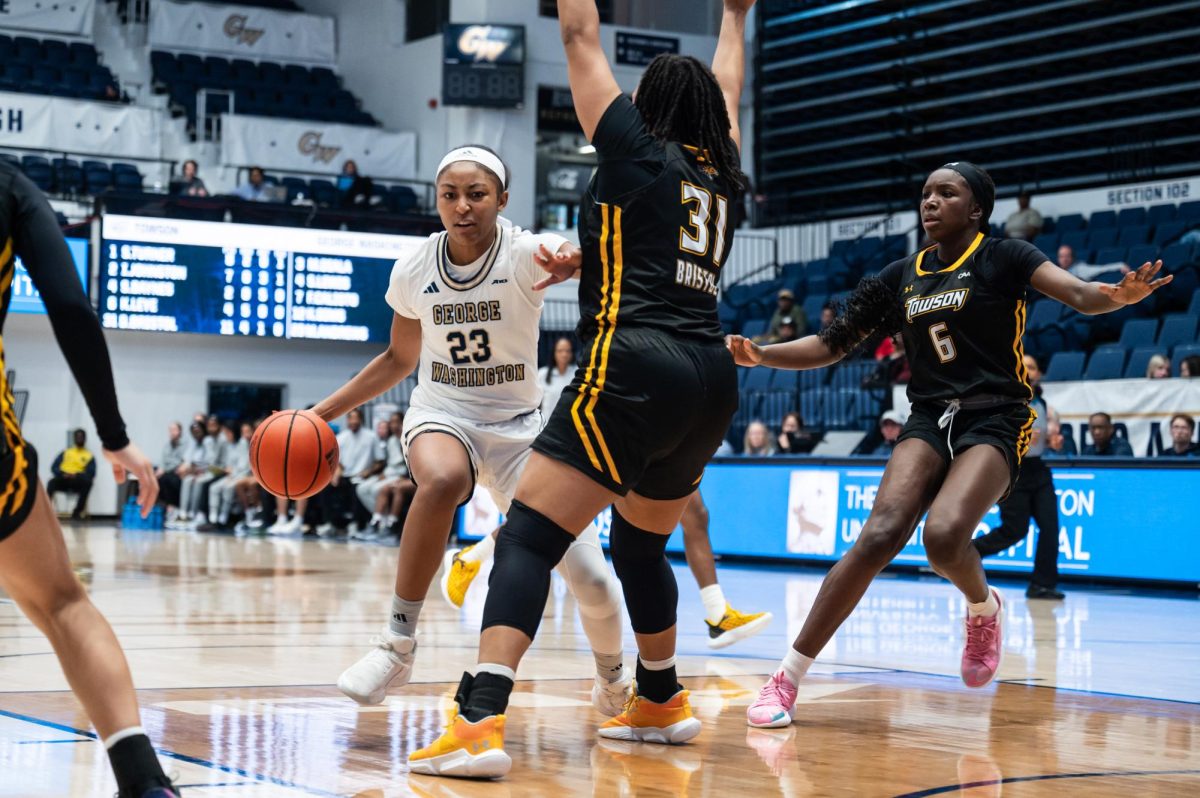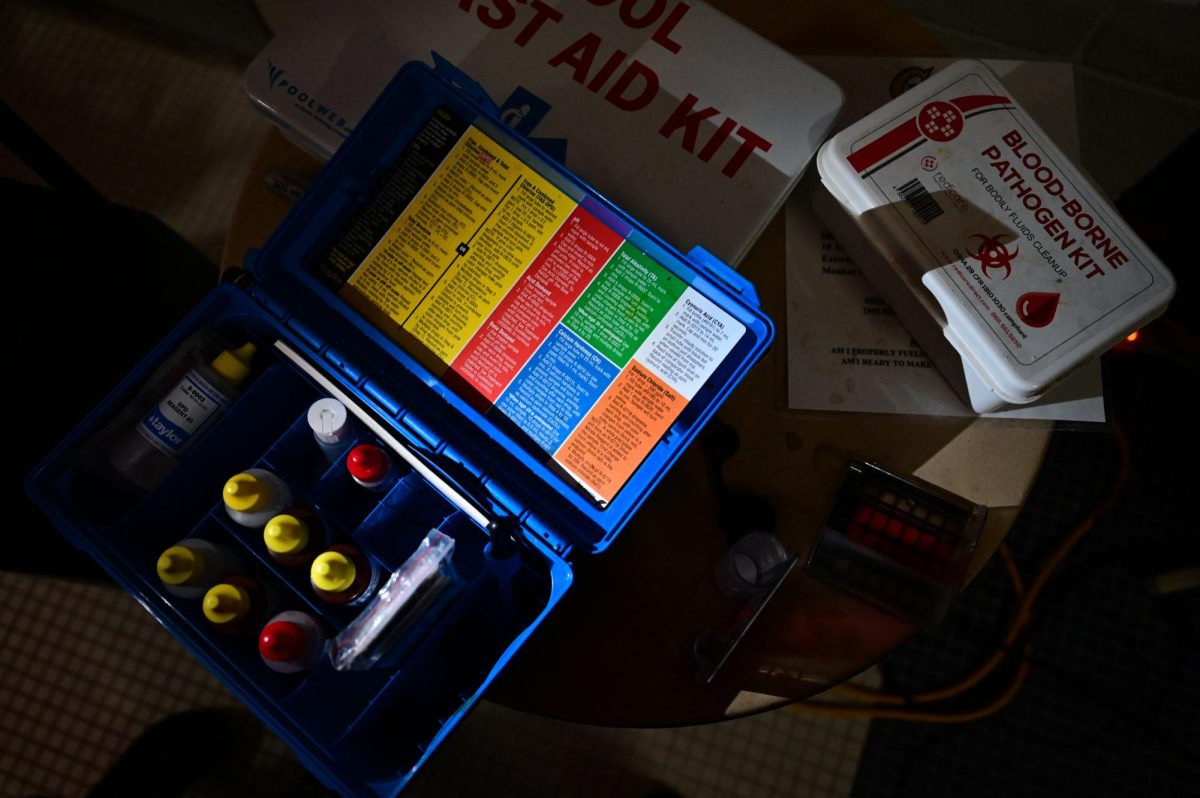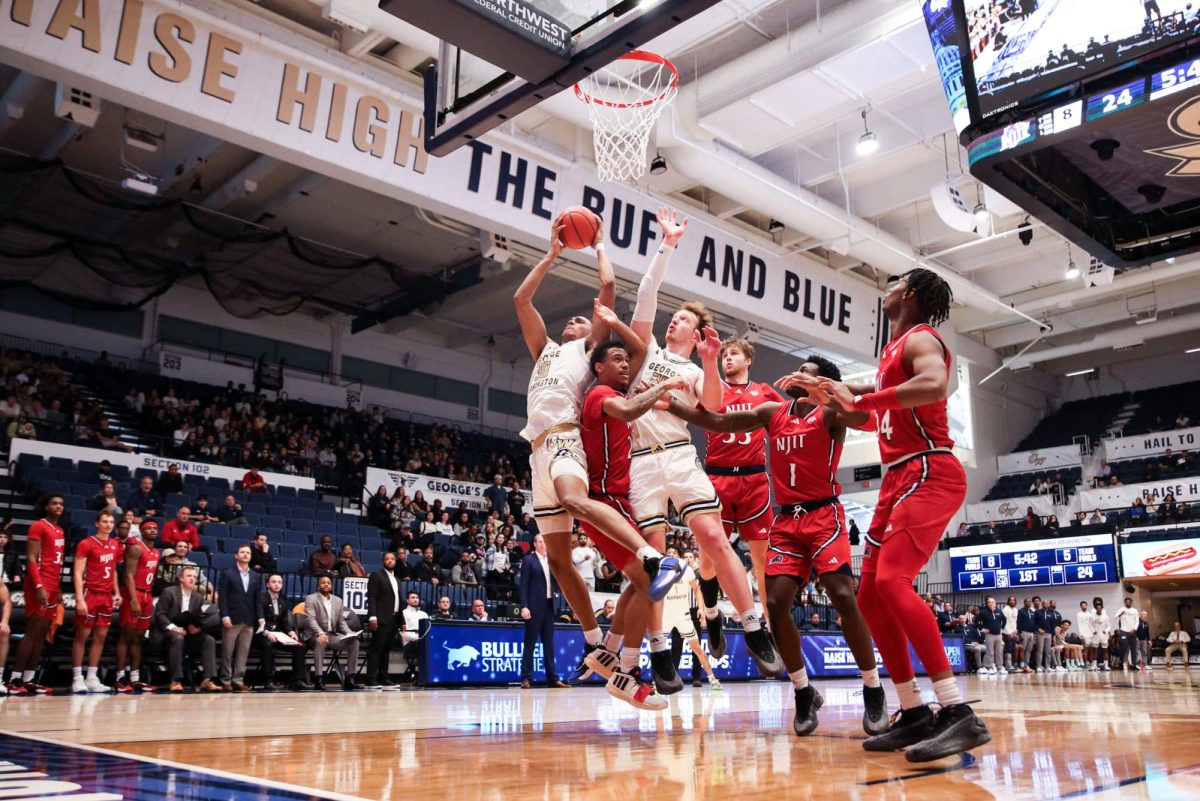A few weeks ago, sophomore center Jaaron Greene walked down the street like he normally would. Assistant coach Roland Houston, starting his first year on the Colonials’ staff, saw the six-foot-eleven-inch Greene and let the player know how he felt about his gait.
“You have to walk like a big man,” Houston said. “Stand up straight and stick out your chest.
“I would’ve never thought (to tell Jaaron that),” said GW head coach Karl Hobbs, recalling the encounter. “Coach Houston is helping change (the forwards’ and centers’) attitudes, making them think like that all the time.”
As the team wraps up its first week of practices, Houston, who played forward and center at Rhode Island in the early 1980s, is bringing his expertise to the Colonials, a team with many talented big men who could benefit from his teachings. GW hired the coach over the summer to replace former assistant Kevin Broadus, who left to take a job at Georgetown. He is Hobbs’ first new assistant since the current staff was hired in 2001, joining Steve Pikiell and Darrell Brooks.
Greene, juniors Alexander Kireev, Mike Hall, Pops Mensah-Bonsu and Omar Williams are long, athletic players who stand taller than 6-foot-8. They each have the ability to get out on the break, but a sharper post game could make them an even greater threat to opponents.
In the final of the BB&T Classic last season, Gonzaga University center Ronny Turiaf racked up 29 points against a porous GW interior defense. Houston’s influence should help the Colonials’ big men battle bruisers down low.
Houston did not discriminate when speaking about the players under his tutelage. Each one has his strengths and weaknesses, but each has the talent to improve to help the team.
He mentioned Hall and Williams as two fundamentally sound players. Last season, Hall averaged almost eight rebounds per game – the fifth best mark in the Atlantic 10.
Mensah-Bonsu, Houston said, is strong, but “has the potential to do a little bit more defensively.” Kireev, he added, has shown the ability to “show solid defensive pressure and how to anticipate.” Junior forward Dokun Akingbade, who did not see much time in his first two seasons, “could contribute,” this season, Houston said
“All the guys are working hard,” he added. “They are very receptive to getting better.”
Clearly, technique is an essential part of a post player’s game. But as Houston has made clear to the players, it’s also about attitude.
“We have to set the tempo,” Greene said of the forwards’ and centers’ role at GW. “We have to be the anchor and say, ‘Hey, we’re not going to let anybody push us around.’
Houston said a post player’s situation is different from any other.
“Only a big man can teach a big man how to be a big man,” Houston said. “Unless you’re big, then you don’t know that people will ask you things like, ‘You’re big, do you play basketball?'”
Greene said Houston has helped unify the Colonials. The coach, who played professionally in Europe and Israel for 14 years has served as a consultant to overseas teams and recently served as an assistant at La Salle.
“He has pulled us together,” Greene said. “He expects greatness out of us and we want to meet his expectations.”
“He’s put his time in,” he added, in reference to Houston’s on-court and coaching experience.
Bringing Houston in, Hobbs said, has been great for his team. The two actually played against each other in college. And before Hobbs chose Connecticut, Houston tried to persuade the guard to attend URI.
“My background is more guard-oriented,” Hobbs said. “But we still need someone for the post men.”






